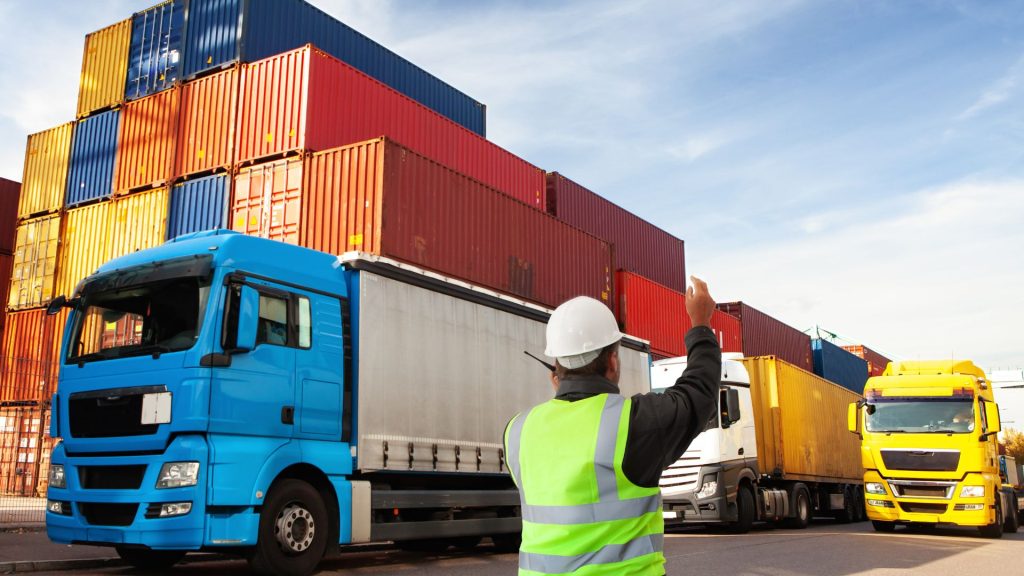MAERSK UNVEILS NEW AI PLATFORM TO SIMPLIFY CUSTOMS TASKS
Shipping giant Maersk has rolled out Maersk Trade & Tariff Studio, a digital solution designed to empower global cargo
owners and bring clarity to complex customs processes. The platform, backed by artificial intelligence, arrives as
businesses grapple with rising tariffs, heightened regulatory scrutiny, and frequent disruptions to customs procedures.
For many internationally active companies, the traditional approach to customs involves managing a disparate network
of local brokers, often numbering in the dozens across various ports and countries. This fragmented strategy, Maersk
(OTC: AMKBY) said in a release, leads to disconnected data, limited visibility into the customs journey, and, crucially,
significant overpayments in duties. Maersk’s research reveals that 5-6% of tariffs are, on average, overpaid due to a lack
of centralized data and optimization efforts. Furthermore, 20% of shipment delays can be attributed to inadequate
customs preparation, disrupting supply chains and adding to operational costs. The platform is continuously updated
with real-time information from data partners and Maersk’s worldwide network of 2,700 customs experts..
RAIL COULD BOOST EXPORTS IN NEW PORT OF LA PACT
The Port of Los Angeles has signed a Memorandum of Agreement to generate more export traffic for the port from
California’s Central Valley through an agreement with the city of Shafter and the developer of a logistics hub there.
Central to the agreement is the Wonderful Logistics Center, a 3,400-acre development in Shafter, Calif. — 18 miles west-
northwest of Bakersfield on the BNSF main line — owned by the Wonderful Co. The logistics hub and container depot
already serves companies including Amazon (NASDAQ: AMZN), Ross (NASDAQ: ROST), Target (NYSE: TGT), and Walmart
(NYSE: WMT). An international rail terminal is scheduled to open in 2026.“Both The Wonderful Co. and the City of
Shafter have a well-planned vision for creating jobs and promoting economic growth in the Central Valley, and the Port
of Los Angeles stands ready to help,” Port of Los Angeles Executive Director Gene Seroka said in a release. “This
agreement represents our commitment to support faster and more efficient service to and from the Central Valley right
to our terminals and to markets across the world.”

PACIFIC CONTAINER FREIGHT RATES TAKE ANOTHER HAMMERING
Fluctuating fortunes on the Pacific trades have taken an emphatic, but no means decisive, turn south as demand
crumbles, while the prospect of yet more tonnage to be delivered will add a timely reminder of the economics involved.
Drewry’s weekly World Container Index report said that rates on the China to Los Angeles services had fallen by more
than $800 per feu for the third week running. Meanwhile, Xeneta’s chief analyst Peter Sand noted: “Average spot rates
have plummeted from Far East to US West Coast, down 39% since 1 June, but it has not been so dramatic into the US
East Coast with rates holding up stronger – for now.” “It is only a matter of time until shippers do the same into the US
East Coast and spot rates begin to fall sharply there too,” claimed Sand. The outlook for the second half of the year,
according to Braemar data is essentially more of the same as far as newbuilding’s go, with some 1.0 million teu
scheduled for delivery over the coming six months, totaling 118 vessels, “mirroring the pace of the first half”.
Some respite in terms of capacity expansion will come next year with an increase of just 4.5% in 2026, compared to 6.6%
this year, however, 2027 will again see capacity surge with another 7.5% scheduled for delivery.
MSC RAMPS UP MEGAMAX EXPANSION WITH $1.2BN SHIPBUILDING DEAL IN CHINA
Gianluigi Aponte’s Mediterranean Shipping Co (MSC) is pressing ahead with megamax containership fleet expansion
through a new shipbuilding deal in China. The Swiss-based liner giant has ordered up to six 22,000 teu newbuilds from
China Merchants Heavy Industries’ Haimen shipyard. Shipbuilding sources estimate each LNG dual-fuel ship at more
than $200m, with deliveries expected to start in 2027.The world’s largest container carrier counts about 6.67m teu in
carrying capacity, including newbuilds, commanding around a 20% share of the global operated fleet. The company’s
massive orderbook stands at more than 120 ships, which should boost the fleet by over 2m slots in the coming years.
Earlier this year, the Soren Toft-led liner also returned to Zhoushan Changhong International Shipyard and Hengli Heavy
Industry in China for a series of LNG dual-fuel megamax containerships between 21,700 teu and 24,000 teu, with
deliveries set for 2028 and 2029.If the latest order is confirmed, MSC’s newbuilding backlog of ships between 19,000 and
24,000 teu will top the 60 mark. The deal would also signal China Merchants Heavy Industries’ debut in the large boxship
construction segment.